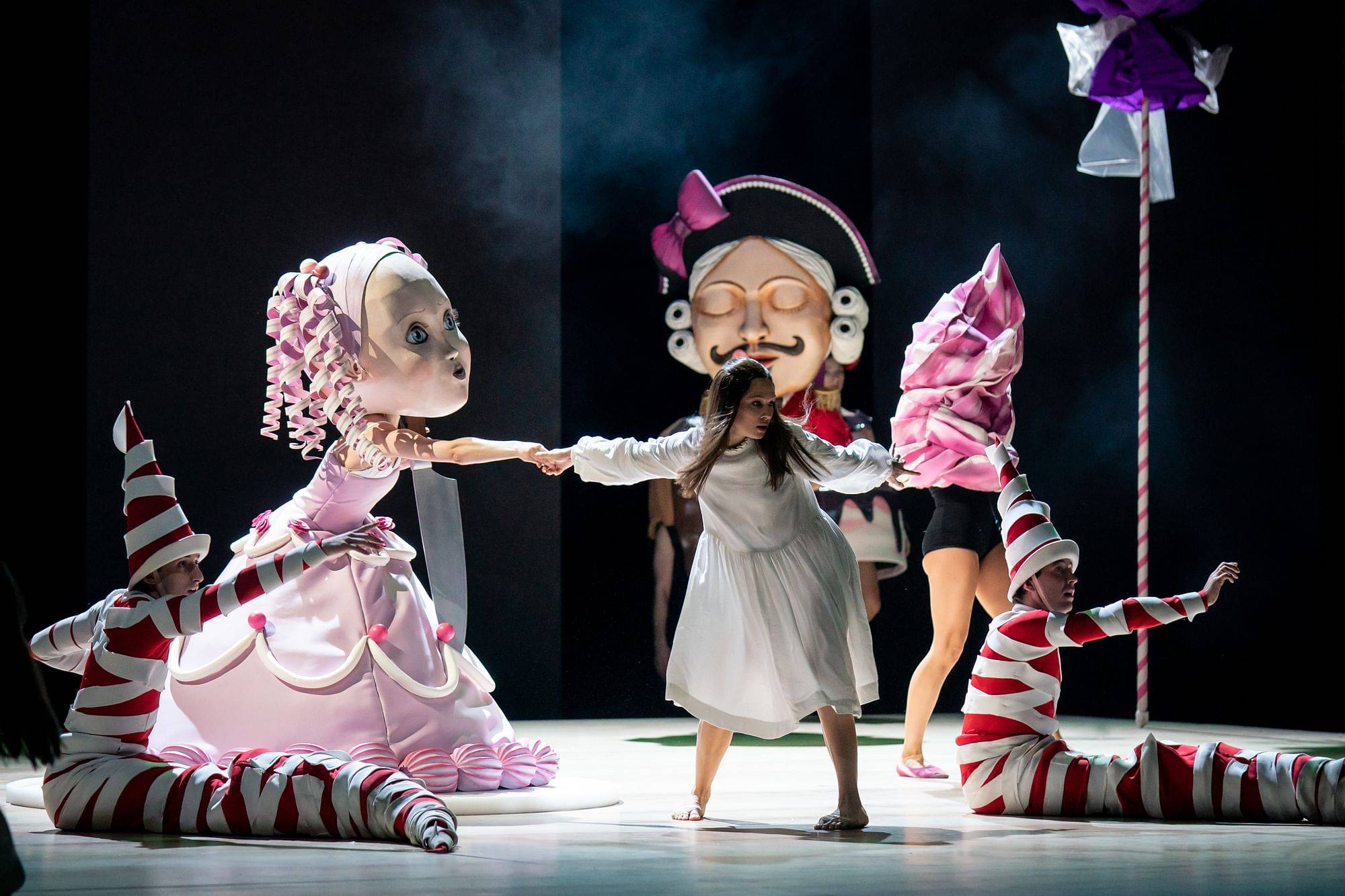Vienna doesn’t trust a happy Tchaikovsky
NewsFirst night review from the new Volksoper’s Jolanthe und Der Nussknacker by Alastair Macaulay:
On Sunday 9, warm and long applause greeted the first production by a new regime at Vienna’s Volksoper, artistic director Lotte de Beer (Dutch) and conductor Omer Weir Wellber (Israeli). Enterprisingly, they have begun with one of music’s most prestigious but rarely performed double bills, the opera and ballet that Tchaikovsky wrote for the same premiere evening in 1892, the year before his death: Iolanta (as the English tend to spell the opera) and The Nutcracker (perhaps the world’s most performed ballet). In Vienna, with the opera sung in German, these become Jolanthe und der Nussknacker.
Tchaikovsky, in composing such a contrasting duo, probably intended to display his compositional virtuosity: Yolanta, the poignant operatic psychodrama about a blind heroine who must learn to want sight before she can attain it, and The Nutcracker, the child’s magical mystery ballet tour through successive realms of fantasy. What other world-class composer of his day – or any day – could show such theatrical diversity?
I could hypothesise further about Tchaikovsky‘s agenda , but there’s no point here. De Beer, Wellber, and Russian choreographer Andrey Kaydanovskiy have imposed their own agenda on the 1892 pairing as if Tchaikovsky didn’t know his business. Combining Volksoper forces with the Vienna State Ballet, they smash and slice both works into bite-size chunks, and interleave some of the results. They occasionally play music from Jolanthe (let’s keep the German spelling henceforth here) and The Nutcracker at the same time in different acoustics. On the whole, however, they keep switching between the two works, while omitting important chunks of each. The whole show runs, with one interval, at just over two hours, which is not too hard to achieve if you omit most of Nutcracker’s music, as they do.
De Beer and Wellber take the main drama (and most of the music) of Jolanthe fairly seriously. True, they don’t like or trust it quite enough to play it complete – having seen productions of it in Russia, Britain, and America, I testify how well it works in its entirety – but they present much of its music, in the right sequence, while telling most of its moving story, in a vaguely modern-dress way; the German translation (often rhyming), sung with admirable diction, stays close to the Russian libretto.
Olesiya Golovneva is a brightly tremulous and touching Jolanthe, Georgy Vasiliev is a sensitively herotic Vaudémont, Stefan Czerny is impressive as Jolanthe’s father king René, and Szymon Komasa keenly intelligent as the therapeutic Ibn Hakia. Wellber elicits richly lyrical playing from his orchestra, with specially beautiful string playing and sensuous woodwind. The brass is at times unduly forceful. Some of Tchaikovsky’s codas become too punchy.
Does it matter that Nutcracker is Tchaikovsky‘s single most perfect and brilliant composition? De Beer has reduced it to a few disordered highlights, staging them as if Nutcracker embodied the principles of infantilisation and escapism that has kept the heroine Yolanta from wanting to see until now. In her dark dreams, she sees bizarre Nutcracker deconstructions but also – as her own new relationship with her kind saviour Vaudémont develops – she also sees the central Nutcracker couple, Clara and the Nutcracker, as a surrogate version of herself and him, similarly but more prettily dressed. At times the stage is flooded by Yolantas and/or Claras, in the same white dress.
This may sound better than it proves. This Nutcracker has a few mice in black leotards, four tall, grim, grey toy soldiers with rifles, a white rabbit, some dancing sea anemones, and equal numbers of men and women wearing the same white tutus. There’s no pointwork, no tights, no Christmas tree, no family party, no transformation music, no Spanish or Chinese or Arabian dance or Mother Gigogne). It’s anti-Nutcracker, with little real dancing of any kind. With dreams like this, blindness is anguish indeed.
Do I sound severe? There’s worse. Although I’ve seen more than forty different Nutcracker productions, nothing had prepared me for the horrorfest whereby, to the music of the famous Sugar Plum variation, a human-sized doll wields a huge saw-like blade with which she repeatedly stabs herself. (What’s ghastliest is that these successive self-stabbings are underplayed, as if such things were par for the course.)
I suppose this is all intended as part of the nightmares suffered by poor Yolanta. Do I need to point out that Tchaikovsky’s Yolanta, not realising she is blind, is not unhappy? Do I need to point out that, for that Sugar Plum music, Tchaikovsky took pains to import the celesta to Russia, wanting to ravish St Petersburg with the novelty of its unearthly magic? De Beer knows better. She knows that this famously pretty music is about psychological torment and repeated suicide attempts.






Does anyone know why Welber left the BBC Philarmonic so abruptly? Did the relationship become sour or did Welber just drop them because he overly stretched himself with too many orchestras? The BBC Phil was a great springboard for Noseda and it is odd that it left no mark with Welber’s career.